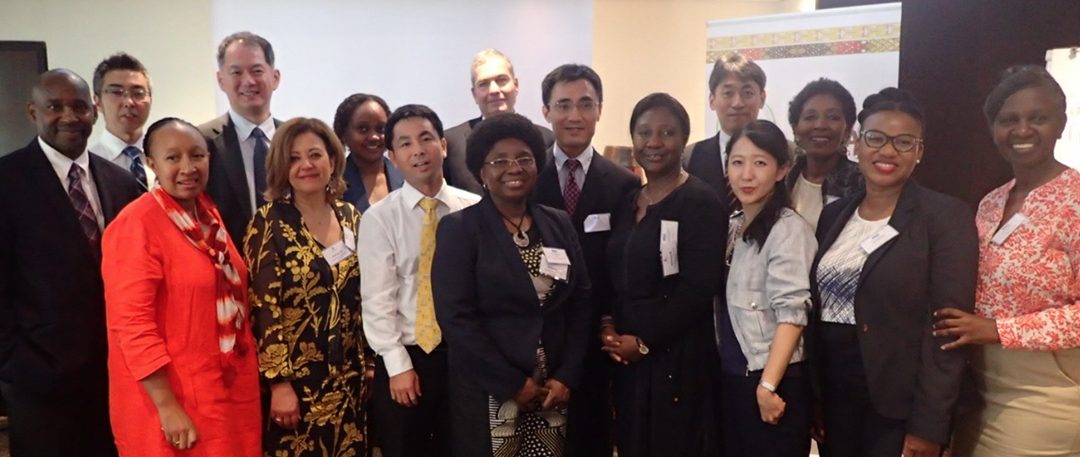The Second Steering Committee (SC) Meeting for IFNA was held on 7 February 2018 in Johannesburg, South Africa. The main agenda for the meeting was to share the progress since the launch of IFNA in 2016. The meeting also discussed critical issues on IFNA’s management and the implementation plan for 2018.
IFNA’s SC members present at the meeting were African Development Bank (AfDB), the Food and Agriculture Organisation (FAO), the International Fund for Agricultural Development (IFAD), the Japan International Cooperation Agency (JICA), the Japan International Research Center for Agricultural Sciences (JIRCAS), the New Partnership for Africa’s Development (NEPAD), the United Nations Children’s Fund (UNICEF), the World Bank (WB), and the World Food Programme (WFP). The World Health Organization (WHO) participated via Skype. The meeting was co-chaired by JICA and NEPAD.
The main issues discussed at the meeting were as follows:
1. Annual Report for 2017 and Annual Work Plan for 2018;
Annual report for 2017
- The First Partners Meeting was held in Addis Ababa in May.
- IFNA Secretariat was set up in July.
- The IFNA preparatory survey was conducted in all ten (10) IFNA participating countries from May to October.
Annual Work Plan for 2018
- The development of IFNA Country Strategy for Actions (ICSA)* in all participating countries.
- IFNA’s position in international food and nutrition security.
- Plan towards 2019/2020.
2. ICSA adoption process and next actions;
SC members reviewed and shared their comments on the ICSA format and the process of the ICSA development.
3. Overview of the regional workshop in April 2018
ICSA development workshops would be undertaken from February to March 2018 in each country and findings would be shared in the regional workshop in Senegal in April 2018 for mutual learning.
4. Research activities
SC members discussed areas of research necessary to build evidence to achieve IFNA’s vision. Some of the potential examples of the research area include foresight analysis, bio-fortification, micronutrient rich fertilizers, crop diversification and quantitative impact evaluations of food-based interventions.
5. Revision of the Management and Operational Guideline (MOG);
The MOG is the general rules for effectively operating IFNA. The draft MOG was shared with SC members for their comments.
6. IFNA Vision;
SC members discussed the draft version of the Vision and agreed that the Task Force would revise with clearer value-addition to countries and partners.
7. Expansion of participating countries;
There was a suggestion to expand IFNA participating countries in consideration of the African Union’s geographic regions. The addition of two countries, one from Central Africa and the other from North Africa, was agreed.
* The IFNA Country Strategy for Actions (ICSA) is a strategic guidance document developed in a government-led, participatory and multi-sectoral manner towards actions on the ground to improve nutrition status by;
- translating countries’ priority nutrition policies and strategies into implementation of specific multi-sectoral interventions, including integration of agriculture as one of the key components; and
- serving as instrument for resource mobilization for the country in a more effective manner by avoiding diffusion of limited resources and allowing concentration to the highest priorities.

Recent Comments